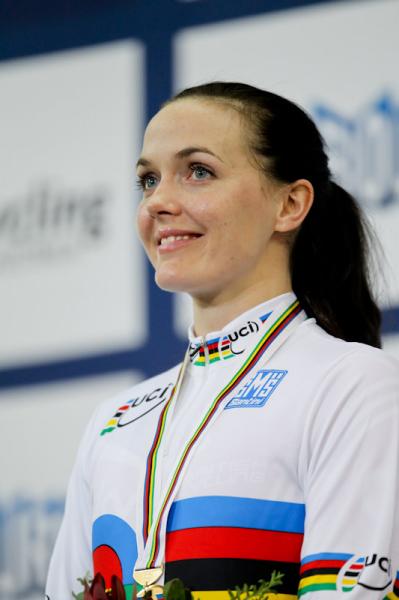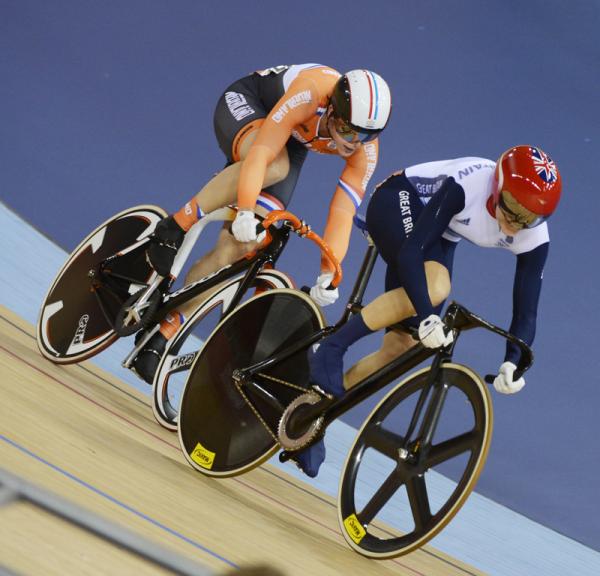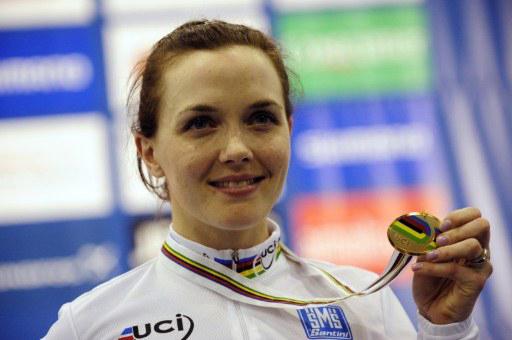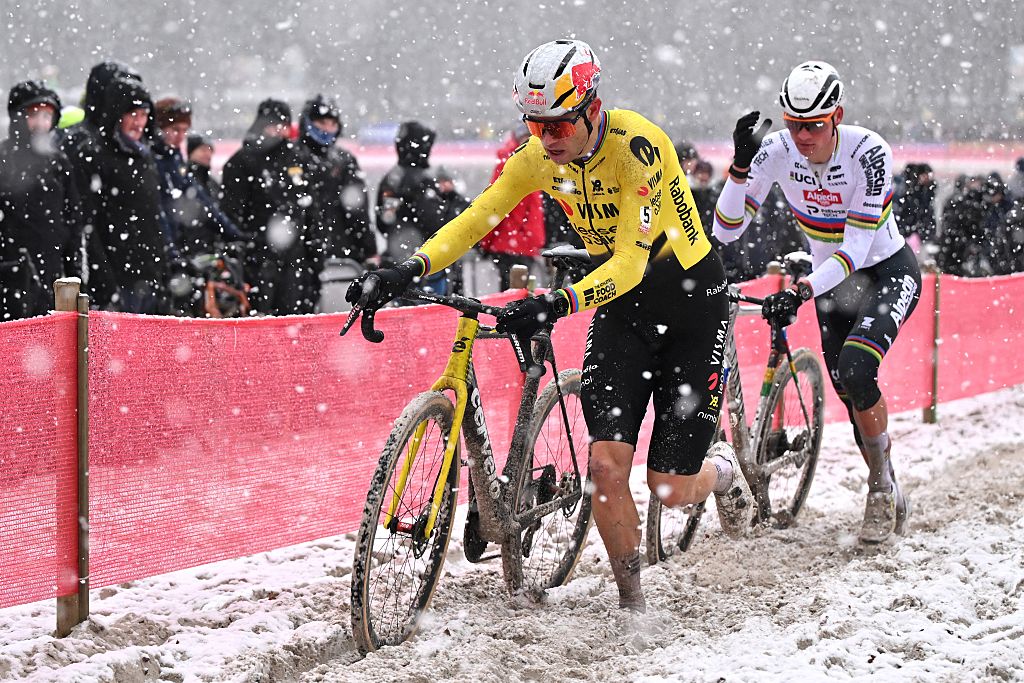Pendleton drawing on experience as final curtain looms
Team GB rider to bow out in London velodrome tomorrow



It's been a few days of highs and lows for Great Britain's Victoria Pendleton at the 2012 Olympic Games so far in London. After she and Jessica Varnish were disqualified from the team sprint on the track's opening day on Thursday, Pendleton bounced back from the disappointment to secure gold in the keirin the following day.
It was the second Olympic gold medal of a glittering career, following on from her victory in the individual sprint at the 2008 Beijing Olympics. Tomorrow night Pendleton - who has won nine world championship gold medals - looks to defend that title in the Olympic velodrome and should renew her rivalry with Australia's Anna Meares, who Pendleton defeated in the 2008 final. In the last couple of seasons the battle for supremacy between the two women in that event has stepped up a notch. If all runs to form and the two women meet in the final tomorrow evening, it could represent the last time Pendleton is seen in Team GB colours. She has repeatedly stated in the run-up to these Games that she intends to retire at their conclusion.
Meares took Pendleton's world title at the 2011 world championships in Holland, a race that appeared to herald a changing of the guard. Pendleton's niggling injuries and advancing years saw her dislodged as favourite to win Olympic gold again in London, but the 31-year-old Briton roared back to form at the 2012 world championships in April, where she defeated Meares in an incident-packed semi-final before went on to reclaim her world title. Now the stage is set for one of the most eagerly anticipated showdowns on the track at this year's Games, with Pendleton proving her wellbeing in qualifying by setting a new Olympic record.
"I was surprised to beat her in Melbourne," Pendleton told Cyclingnews as the event drew closer. "My qualifying there wasn’t amazing but then it never is. I knew at the time that there was still a lot more to do training-wise and that I wasn’t anywhere near my peak. My goal was always to peak in August and not before.
"Obviously there was a taper period going into Melbourne and I allowed myself some time to freshen up, but I knew that there was still a lot more to come. I know from the past that I’m not someone who can produce multiple top level performances in a season. I have to be very strategic in how I plan my performances. When she qualified almost three tenths faster than anyone else I did wonder if I could go with her. I thought that the odds were stacked in her favour but you have to go into each race and give it everything. That’s what I did and on that occasion it worked."
Last of a generation
These Olympics are the third of Pendleton's career, which has taken a path that would be alien to many of the younger generation of elite British cyclists currently coming through the system. When Pendleton was a teenager British Cycling's World Class Performance programme was still in the development phase and her route to the professional ranks was a varied course that took in a university education. She was one of the last of a generation before things changed forever at the turn of the century.
The latest race content, interviews, features, reviews and expert buying guides, direct to your inbox!
"If I had been 18 now, there absolutely wouldn't be the option of me going to university," she said. "There’s no leeway these days to allow you to go and do those sort of things. If you’re on the academy then you’re on the academy full time and that’s it.
"I don’t think they would have waited for me to be honest. As it is I don’t think that at that age I would have passed some of the current tests and been selected in the first place. So I’m definitely glad that I came along when I did as I wouldn’t have been able to choose the path that I really wanted to.
"If I’d started at the age of 18 with the programme I wouldn’t have been ready for it. I wasn’t ready at that time to embrace the lifestyle and commitment that it now needs. In terms of my development and my maturity as a human being I don’t think that I was ready to do that in 1998 or 1999. It worked for me and it was the right choice for me and thankfully I was also a late developer physically so it all fell into place pretty well."
Olympic apprenticeship
Her apprenticeship has been a long one and Pendleton certainly was no overnight success. She confesses that her first Olympics, in Athens in 2004, were a daunting proposition that she didn't really enjoy at the time. Looking back, however, she says that although it wasn't easy it definitely made a difference to the mental aspect of her performance four years later in Beijing where her victory changed her life.
"In Athens I was totally overwhelmed by the Olympic experience," she said.
"I didn’t know what to expect and I found it all very daunting. Everything seemed very strange and, in a way, clinical. The compound mentality, the dining, everything. I didn’t feel very settled in that environment as I’d never experienced anything like it before. So it was definitely valuable in terms of knowing what to expect going into Beijing four years later when I was in better shape and approaching my peak. In terms of performance Athens wasn’t necessarily a highlight, but it prepared me well for what was to come in four years time.
"I never thought that I could win big medals and make a decent living from the sport until a year later, when I won the worlds for the first time in 2005. Other people thought so but I never really believed it myself.
"In terms of sponsorship, media commitments and how I needed to balance my training and my lifestyle, Beijing changed things enormously. Making money as a female cyclist wasn’t really something I thought possible. I thought I’d be living a very frugal existence for my whole career really and had prepared myself for that.
"I never thought of cycling as a sport where I’d be comfortably off, have a pension and that sort of thing. You get invited to some amazing events and meet some incredible people. And of course getting the MBE was something I was very proud of. An Olympic medal is always the hardest to win, especially in the sprint as the process is so drawn out. One tiny mistake – like a glance over the wrong shoulder – and it’s over. It was definitely, up to that point, the pinnacle of my career."
Cycling has been part of Pendleton's life for as long as she can remember. She raced in her first event at the age of nine and her father was a successful competitive cyclist who has clearly passed the genes on to his daughter. Growing up, cycling was everywhere.
"My dad was always a keen cyclist so as soon as we were old enough we had bikes," she said. "Nine seemed like the appropriate age to start. We had all the Tours recorded from the early 80s on Betamax and VHS. We always watched it as a family and we also always used to go and watch my dad when he raced. I’ve been going to cycling events for as long as I can remember, really."
And as she prepares for what is likely to be her farewell to the sport tomorrow evening, does she still get nervous despite all her experience? One thing is obvious - her fierce will to win. It is something that has helped her enormously at these Games so far and is an instinct that she will need to summon one final time in the pressure cooker atmosphere of this home Olympics.
"I’m not racing to just participate," she says. "I want to win just as much as the next person and so of course I get nervous. People with experience of it have said that it’s harder to win at a home Olympics than it is elsewhere as the pressure makes it more difficult. But I'm ready for it. You have to embrace it and use the pressure and the atmosphere to your advantage."
Mark joined the Cyclingnews team in October 2011 and has a strong background in journalism across numerous sports. His interest in cycling dates back to Greg LeMond's victories in the 1989 and 1990 Tours, and he has a self-confessed obsession with the career and life of Fausto Coppi.
